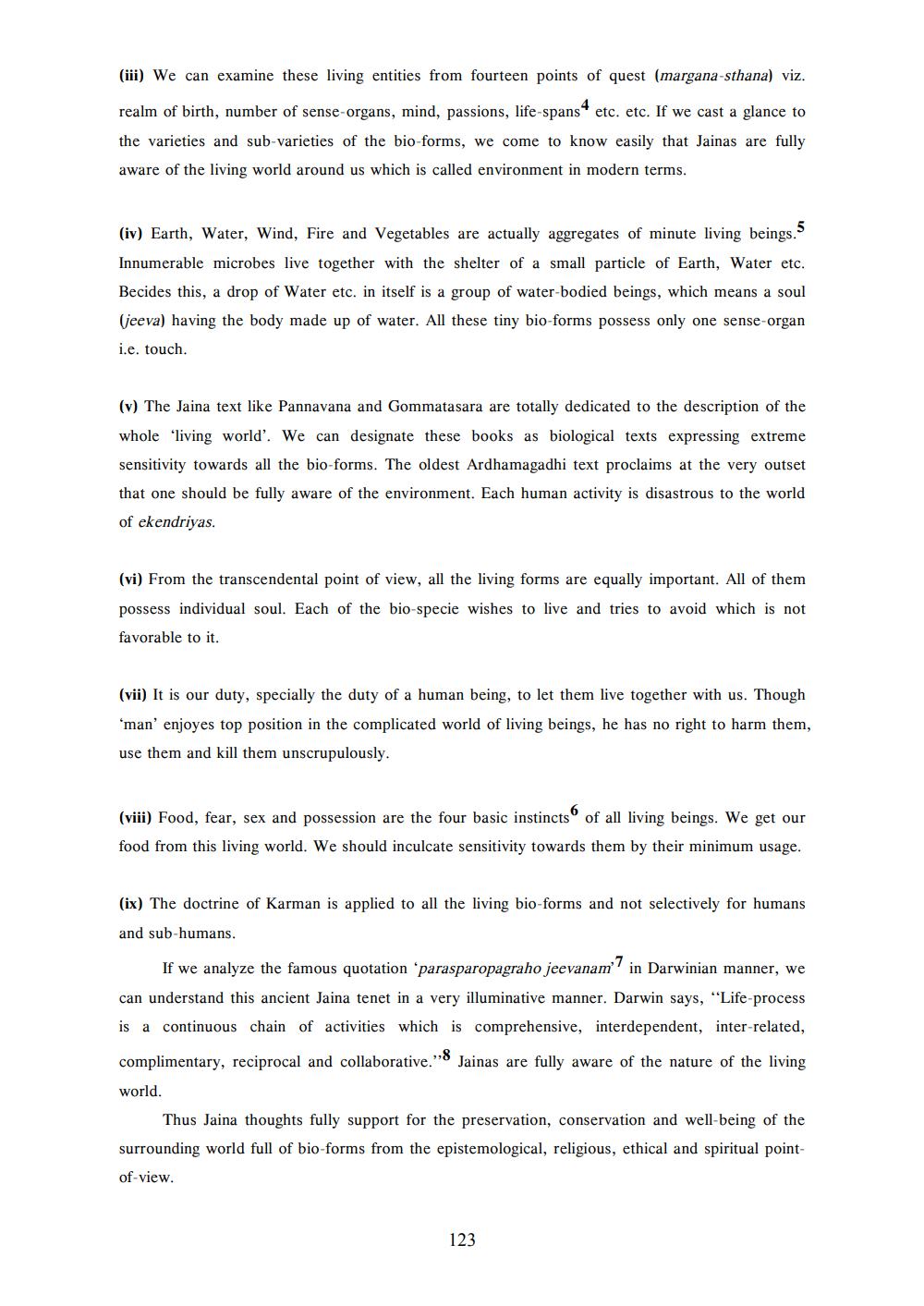________________
(iii) We can examine these living entities from fourteen points of quest (margana-sthana) viz.
realm of birth, number of sense-organs, mind, passions, life-spans etc. etc. If we cast a glance to the varieties and sub-varieties of the bio-forms, we come to know easily that Jainas are fully aware of the living world around us which is called environment in modern terms.
(iv) Earth, Water, Wind, Fire and Vegetables are actually aggregates of minute living beings. Innumerable microbes live together with the shelter of a small particle of Earth, Water etc. Becides this, a drop of Water etc. in itself is a group of water-bodied beings, which means a soul (jeeva) having the body made up of water. All these tiny bio-forms possess only one sense-organ i.e. touch.
(v) The Jaina text like Pannavana and Gommatasara are totally dedicated to the description of the whole "living world'. We can designate these books as biological texts expressing extreme sensitivity towards all the bio-forms. The oldest Ardhamagadhi text proclaims at the very outset that one should be fully aware of the environment. Each human activity is disastrous to the world of ekendriyas.
(vi) From the transcendental point of view, all the living forms are equally important. All of them possess individual soul. Each of the bio-specie wishes to live and tries to avoid which is not favorable to it.
(vii) It is our duty, specially the duty of a human being, to let them live together with us. Though 'man' enjoyes top position in the complicated world of living beings, he has no right to harm them, use them and kill them unscrupulously.
(viii) Food, fear, sex and possession are the four basic instincts of all living beings. We get our food from this living world. We should inculcate sensitivity towards them by their minimum usage.
(ix) The doctrine of Karman is applied to all the living bio-forms and not selectively for humans and sub-humans.
If we analyze the famous quotation parasparopagraho jeevanam' in Darwinian manner, we can understand this ancient Jaina tenet in a very illuminative manner. Darwin says, "Life-process is a continuous chain of activities which is comprehensive, interdependent, inter-related,
complimentary, reciprocal and collaborative."'8 Jainas are fully aware of the nature of the living
world.
Thus Jaina thoughts fully support for the preservation, conservation and well-being of the surrounding world full of bio-forms from the epistemological, religious, ethical and spiritual pointof-view.
123




